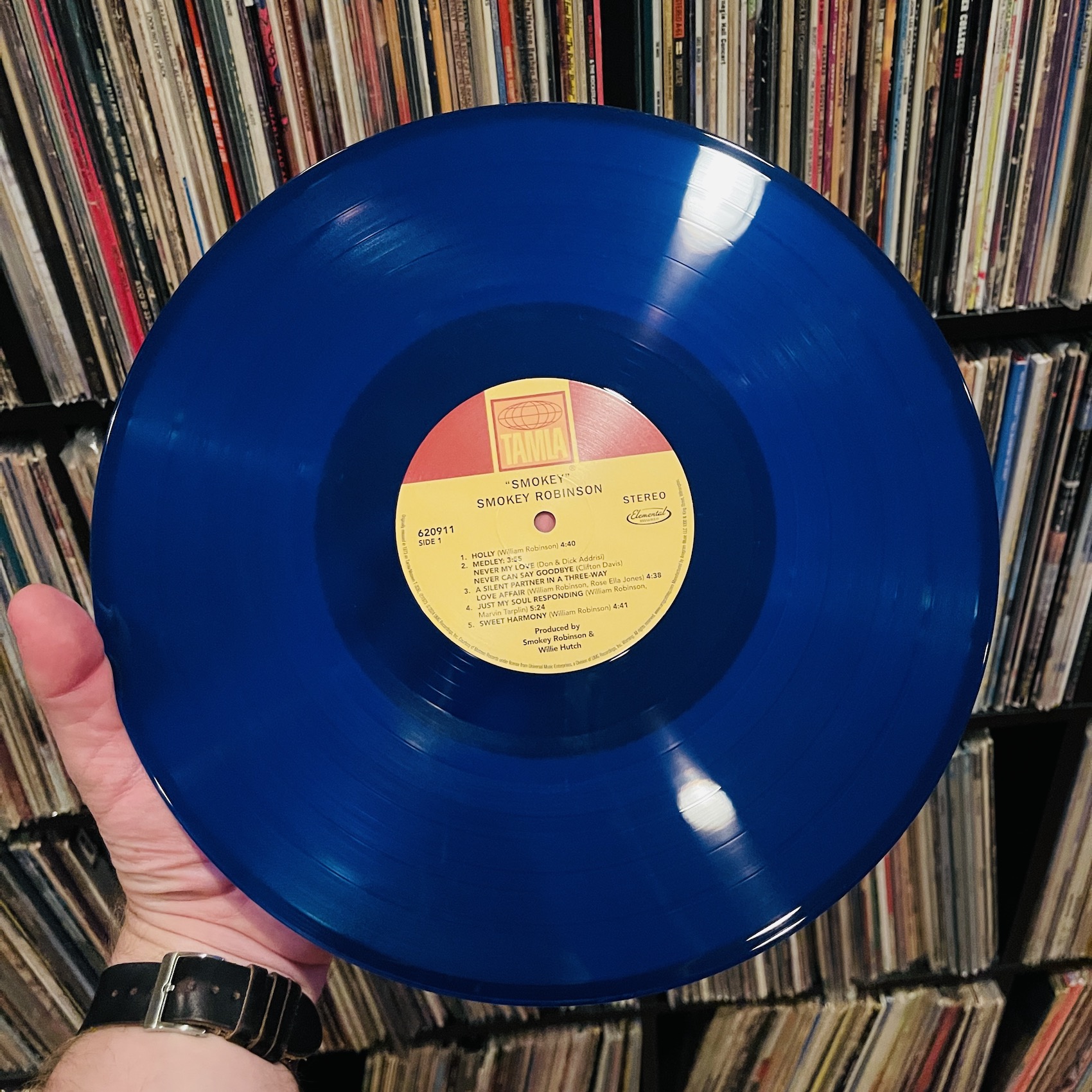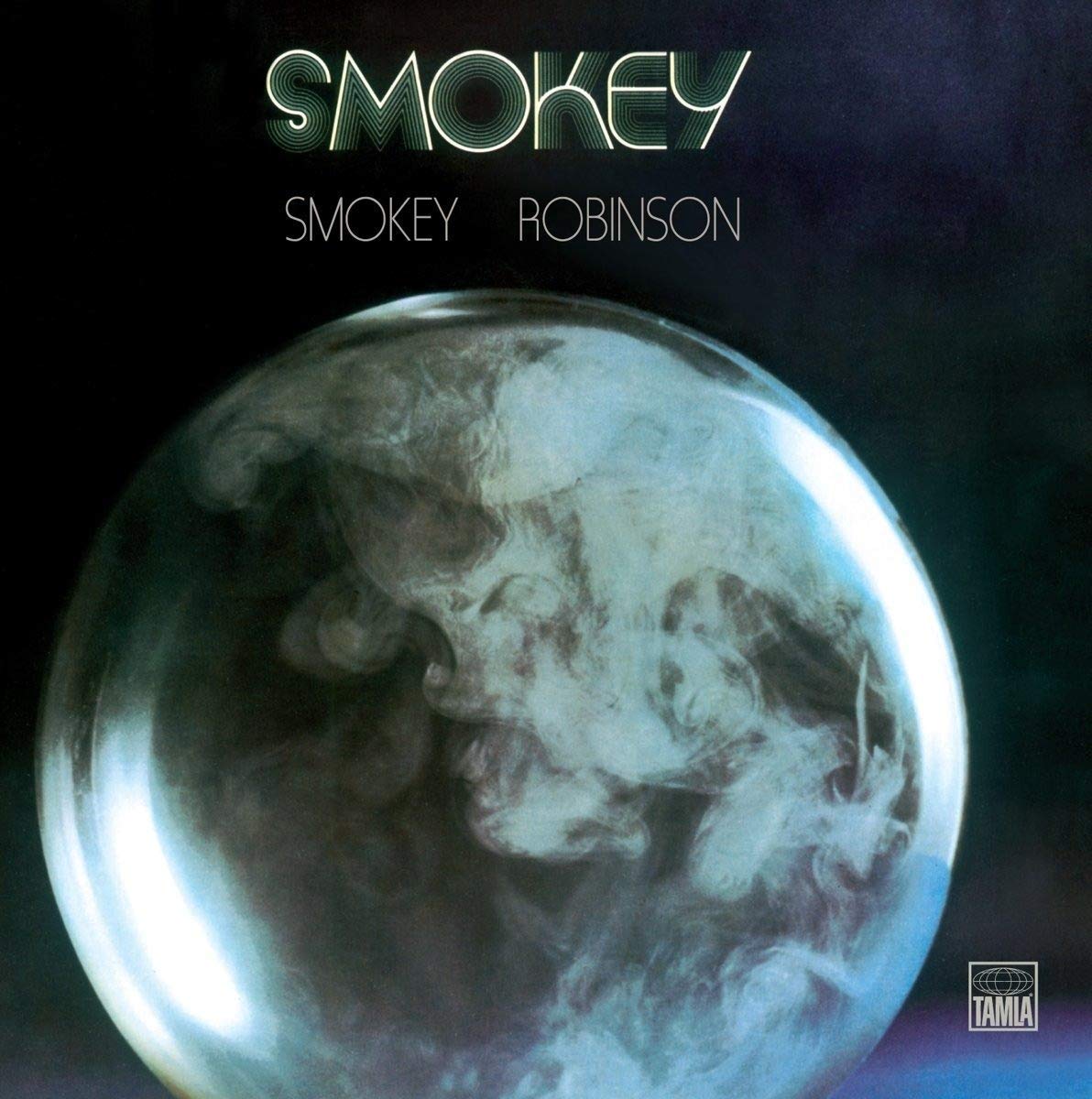Robinson's "Smokey" Reissue Doesn't Smolder
Elemental Music Takes on Motown Classics, Smokey's Solo Debut is in the First Batch
Barcelona-based Elemental Music has secured a significant deal with Motown Records to reissue a selection of classic albums from the iconic label's catalog. Dubbed the Motown Sound Collection, the series will feature over twenty titles. Jordi Soley, the founder of Elemental Music and producer of the project, explains, “For many of the albums that we’ll be putting out throughout 2024 and into 2025, it will be their first reissue since their original release. It's our way of showing some love to Motown's legacy.”
The first releases are: The Temptations’ I Wish It Would Rain, The Supremes’ We Remember Sam Cooke, Smokey Robinson’s Smokey (a blue vinyl/gatefold edition), and The Four Tops’ Still Waters Run Deep. Among these, Smokey Robinson’s Smokey, his 1973 debut solo album, caught my attention. Produced by Smokey Robinson and Willie Hutch and arranged by Dave Blumberg, Gene Page, and Willie Hutch, the album peaked at #70 on the Billboard charts spending 19 weeks there.
A label representative detailed the reissue process: they will release all albums on 140-gram vinyl, cutting and pressing them at GZ. The reissues seem to be from high-res digital transfers of the last masters, likely from the 1980s. It was noted that the new reissues use the Motown masters prepared by Bill Inglot and John Matousek, although specific mastering details were not listed in the albums’ liner notes. For Smokey, digital transfers from the 1981 vinyl reissue’s masters were presumably used for the new lacquer cut. While most releases will be black vinyl, Smokey features a deep blue variant.
 The album opens with the introspective track “Holly,” a mournful story told through Smokey’s evocative lyrics, vocals and lush orchestration. The vivid piano recording gives the song a tactile quality. It feels like sitting beneath a live piano (if you've been there, you'll know).
The album opens with the introspective track “Holly,” a mournful story told through Smokey’s evocative lyrics, vocals and lush orchestration. The vivid piano recording gives the song a tactile quality. It feels like sitting beneath a live piano (if you've been there, you'll know).
And now for a medley! “Never My Love/Never Can Say Goodbye” weaves thematic continuity with its intimate Fender Rhodes introduction and presents a keyboard/vocal take on the Association’s 1967 hit - one the sunshine group’s cloudier songs - before transitioning into a rendition of the Jackson 5’s smash. The mix highlights the rhythm section, though Smokey’s vocal suddenly ends.
Weeping wah-wah pedal on “Silent Partner in a Three-Way Love Affair” signifies a heartbreaking narrative of a relationship disrupted by a friend’s ulterior motives. Despite the somber subject matter, the track’s mid-tempo rhythm and rich studio arrangements—including harps, strings, and horns—create a compelling listening experience. Motown spared no expense providing Smokey with the tools necessary to make this solo album a smash. In the song’s concluding outro, Smokey’s voice slowly fades away the way the character he sings about in the song must have mozied on from the relationship. Thoughtful production and mixing decisions like these add a cinematic quality to the recording.
Drums and percussion are upright and center on this mix. Bass is also prominent, the low end - whether it be bass guitar or kick drum - affectedly complement Smokey’s high-end vocal register. Those frequencies are pleasantly salient, showcasing a trademark Motown tambourine with plenty of zing and jingle sheen. This is especially true on "Just My Soul Responding." There, Smokey addresses three characters facing personal struggles: a would-be draftee, a Native American, and an African-American coping with 1973's inner-city blues. The song’s dirge-like, psychedelic tone is enriched by Native American chants and string riffs, adding depth and resonance to the social commentary.
The liner notes thank, “Tom Bee, a member of Motown’s Indian rock group XIT, for writing and performing the authentic Sioux medicine man chant” on the song. This melange of intersecting experiences creates a work with significant emotional impact and an extraordinarily wide range of inclusive human experience. The composition's ability to simultaneously explore several different perspectives is incredibly valuable, especially on a record aiming for a position high upon the pop charts.
“Sweet Harmony” concludes side one in regal manner and - in fact - it is the album’s centerpiece. Legend has it that “Sweet Harmony” was the lynchpin to the entire project. Originally intended for the Miracles, the song reflects on Robinson's time with the group and the sweet harmonies they made. Legend has it that when Suzanne de Passe - Motown’s A&R rep - heard it, she convinced Smokey to (wisely) save it for himself.
Smokey’s rendition of “Will You Still Love Me Tomorrow” offers a male perspective, though the song’s impact is diminished by the lack of dramatic tension compared to the original. Smokey takes liberties with his vocal riffs. In fact, there are two double-tracked Smokey's singing lead at the same time. It's an interesting gimmick, but one solitary track would have done the trick.
“Wanna Know My Mind” serves as an energetic final dance track, featuring a vibrant horn section and high-powered rhythm. “The Family Song” is an interesting look at family dynamics according to their astrological makeup. If you’ve ever wondered how a Gemini, Aquarius, Leo, and Sagittarius would fare living under the same roof, well, now is your chance to hear a song about it. “Baby Come Close” ends the album on a soft and hazy romantic note apropos of the early 1970s.
Smokey offers listeners a lot of substance. The lyrics are diverse and thematically rich. The music is excellent, thanks to the top Motown players. This new reissue by Elemental is a well-pressed, quiet, and dynamic record. It will serve as a fitting release to introduce a lesser-known Motown release to a new audience.










































.png)








